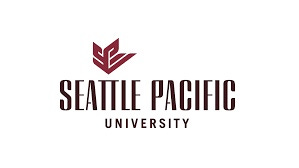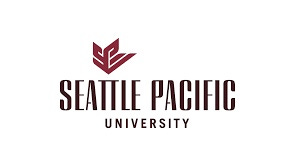I’ve been following the LGBTQ+ inclusion conversation at Seattle Pacific University (SPU) for nearly a decade. The then-president, a colleague from my administrative past, asked me to review some documents in light of some campus situations and give my opinion. I remember telling him, as I’ve told many others, that the policy dispute between faculty/staff/students and older alumni/trustees/denominational officials will eventually come down to a choice between the student market and the denominational tradition. In light of decreasing market share for evangelical college students, I argued, the market will have to win. While my argument may have been a stretch at the time, recent events make me more confident in that judgment.
For those who haven’t been following this unfolding story, the students want SPU to change the employee language prohibiting people in same-sex relationships or marriages to work at SPU. They would also like some of the most strident student handbook language changed. Nothing would change in terms of behavioral expectations as laid out in the SPU lifestyle agreement: extramarital sex (whether premarital sex or adultery) would still be prohibited. To date, the Board of Trustees (or a powerful minority of that group) has been unwilling to accommodate these changes.
There’s some important context to this discussion. First, the state of Washington approved same-sex marriage through a referendum (not court action) in 2012. It passed 54% to 46%. Second, while SPU is officially a Free Methodist school the vast majority of students, faculty, and staff are not Free Methodist. Many belong to denominations that adopted an affirming stance years ago.1
We must also remember that this context occurs within a specific lifespan of the students (and staff) who are affected. Referendum 74 passed when today’s SPU students were between eight and twelve. When the Obergefell decision was handed down in 2015, they were eleven to fifteen. They have grown up in an era and region where they likely thought this conversation was behind them.
It reminds me of a conversation I had in 2011 with a couple of students in their early 20s affiliated with Christian Universities. I asked them how they thought about the LGBTQ+ conversation. One turned to me and said, “I had to figure out what I thought about homosexuality when Jake came out in seventh grade show choir.” Of course she did.
Here’s one other piece of context for those outside the Christian University environment. The campus actually fosters personal exploration as part of its commitment to embody “Christian Community”. Paradoxically, the Christian University operates as a “safe space” in ways that people might not expect. In conversation with an SPU faculty friend yesterday, I learned that the first unofficial LGBTQ+ support group, Haven, began in 2007 and was officially recognized in 2014.
The students at SPU have been active in their support for change. They occupied the interim-president’s office and handed out pride flags at commencement. They raised issues in the press and brought considerable national attention to what was happening at SPU.
In late June, constituents of SPU make official complaints to the Washington State Attorney General, Bob Ferguson. The AG’s office wrote SPU and asked for information about hiring and job descriptions to determine if discrimination was occurring outside the bounds of state law. SPU sued the AG’s office later that month, arguing their right to hire as they wish on religious freedom grounds.
I’m going to pause the SPU story to reflect on a couple of issues recently in the news that will certainly bear upon what happens at SPU over the long run. The first of these has to do with Yeshiva University and that status of a student-proposed LGBTQ+ club. As an Orthodox Jewish university, Yeshiva denied permission for the group. The case then went to New York state court where the judge argued that because Yeshiva’s charter defines itself as an educational institution and not a religious institution, it didn’t qualify for exemption from local non-discrimination law. Yeshiva asked the Supreme Court to intervene, which they did briefly. Then SCOTUS argued that because Yeshiva hadn’t exhausted all New York State processes, it was lifting the short-lived stay. Here’s an explainer from my friend Dan Bennett, political science professor at John Brown University and author of an excellent book on Christian Legal Organizations. Yeshiva responded to the SCOTUS action by ceasing support of ALL student clubs (thereby not discriminating). A non-profit group of Orthodox queer students committed to funding the student clubs in the interim. Today, the Yeshiva LGBTQ+ group offered to cease their attempts for recognition until the legal case is resolved.
The second story involves efforts in the US Senate to move forward a bill to codify same-sex marriage in federal law. Given Justice Clarence Thomas’ concurrence with the Dobbs abortion decision, in which he said that Obergefell was wrongly decided, there was a push to head off an unwinding of same-sex marriage. Senators Baldwin (D, WI) and Collins (R, ME) put forward legislation that would correspond with that which already passed the House. They need at least ten Republican senators in favor to overcome a filibuster (assuming all 50 Democrats support). Last week, the senators decided to delay consideration of the bill until after the midterm elections. Analysts suggested that this was because Senator Baldwin wants a win and not just a campaign tactic against recalcitrant Republicans. We’ll see what happens after November 8, but I think it’s quite likely that the price of getting enough Republicans on board will be some clear religious carve-outs in the final version.
These two stories are significant because for years the conservative legal groups that Dan Bennett wrote about have been telling Christian University administrators and trustees that they needed to fear what the federal government and courts would do to universities if they didn’t adopt affirmative LGBTQ+ stances.
I said earlier that the Christian Community of a university like SPU creates space for people to ask hard questions: about themselves, their place in the university, and their relationship to the sponsoring church. This week a group of faculty, administrators, and trustees released what they named the Third Way document. It is a careful and respectful examination of the current situation at SPU and suggests that it’s important to think of SPU as “sacred liminal space”; not fully denominational and not completely independent.
Last week, the Seattle Times reported that a chemistry lab instructor at SPU had sent out a campus email announcing that she was a lesbian. The story also described a music professor, happily married, who had let the community know that he was bisexual. This openness to address the situation stands in stark contrast to the situation in prior years. This New Yorker story from Emma Green focused on Kathy Lee (not that one) a political science professor who had recently retired from Whitworth. (Lee worked at SPU at one point her career.) This new visibility portends change.
Just under two weeks ago, I was interviewed by the Religion News Service’s Kathryn Post. She was working on a soon-to-drop long form story about students and their parents looking at Christian Universities and worrying about conservative causes like CRT and Wokeness. It was a delightful conversation2 that turned to the question of progressive students who might be turned off by conservative stances at Christian Universities. Maybe, I suggested, we need to pay more attention to those voices rather than letting the conservatives drive the dialogue.
My SPU faculty friend confirmed this sentiment in our chat yesterday. He said that students are coming to SPU because they want to engage the current conflict.3 They are doing so on unique grounds.
Last week, a group of SPU students filed suit against six trustees. Rather than focusing on discrimination issues, they argue that the anti-affirmation stance the trustees have insisted on is a breach of their fiduciary duty. The suit argues:
Without Court intervention, Defendants will soon: (a) force the majority of SPU’s remaining faculty, staff, and administrators to leave (and even higher percentages of those who are BIPOC and/or LGBTQ+), (b) deplete the Seattle Pacific Foundation’s assets (i.e. deplete SPU’s endowment), (c) cause SPU to default on its massive debt obligations, and (d) continue to facilitate the misappropriation of SPU’s properties and other valuable assets.
I have no idea how this case will progress. There are complicated questions of standing and actual harm that will need to be litigated. But what it does make clear is that the imagined threat of Democratic administrations coming after Christian Universities kept them from fully appreciating the tensions bubbling up within those institutions. I expect many other Christian Universities to face similar lawsuits from interested parties in the near future.
The dam may not be breaking, but I’m seeing lots of leaks that the little Dutch Boys are going to have a hard time controlling.
This was the rationale World Vision used in their short-lived change in policy allowing LGBTQ+ staff in 2015. Given public outcry from conservative gatekeepers and a willingness to cancel child sponsorships from constituents, they backed down.
A remarkable byproduct of our chat was that I got out my long-shelved book project on Christian Universities, restructured the argument, and have been happily writing ever since. I you want to know more, drop me an email. If you want to publish it, absolutely email me!
There’s a presidential search underway. Let’s hope the new president shares the students’ sentiments.





I'll likely have a longer comment later when I can better digest the awesome piece above. (And I have to begin my work day!)
But I have a question. A colleague of mine used the term "wokeness" in a derogatory way. I was puzzled because I didn't understand the term. I wondered what was wrong with being awake and alert. Later I asked a couple of folks that I can confess my ignorance to what "wokeness" was and received various definitions that didn't quite jibe. It appears to be a somewhat fluid term. (I'm avoiding Google on this as it will likely be chasing rabbits.)
Is "wokeness" bad? How does John define it?
Have a lovely day.